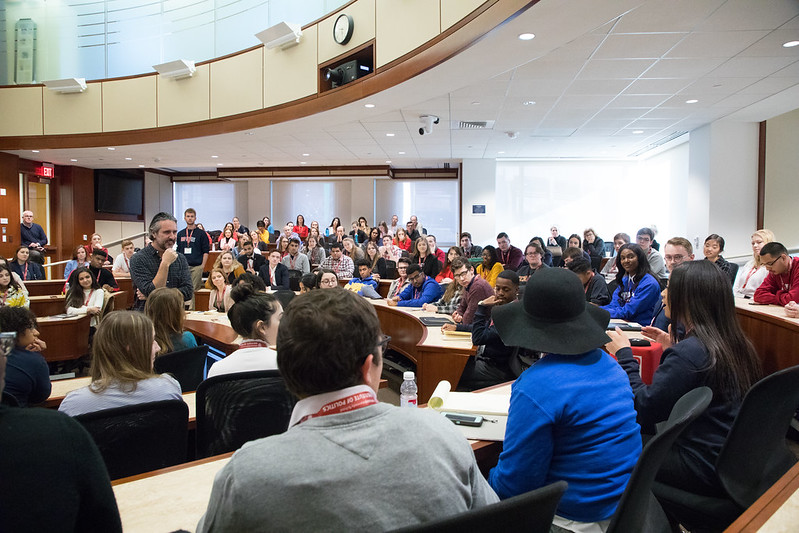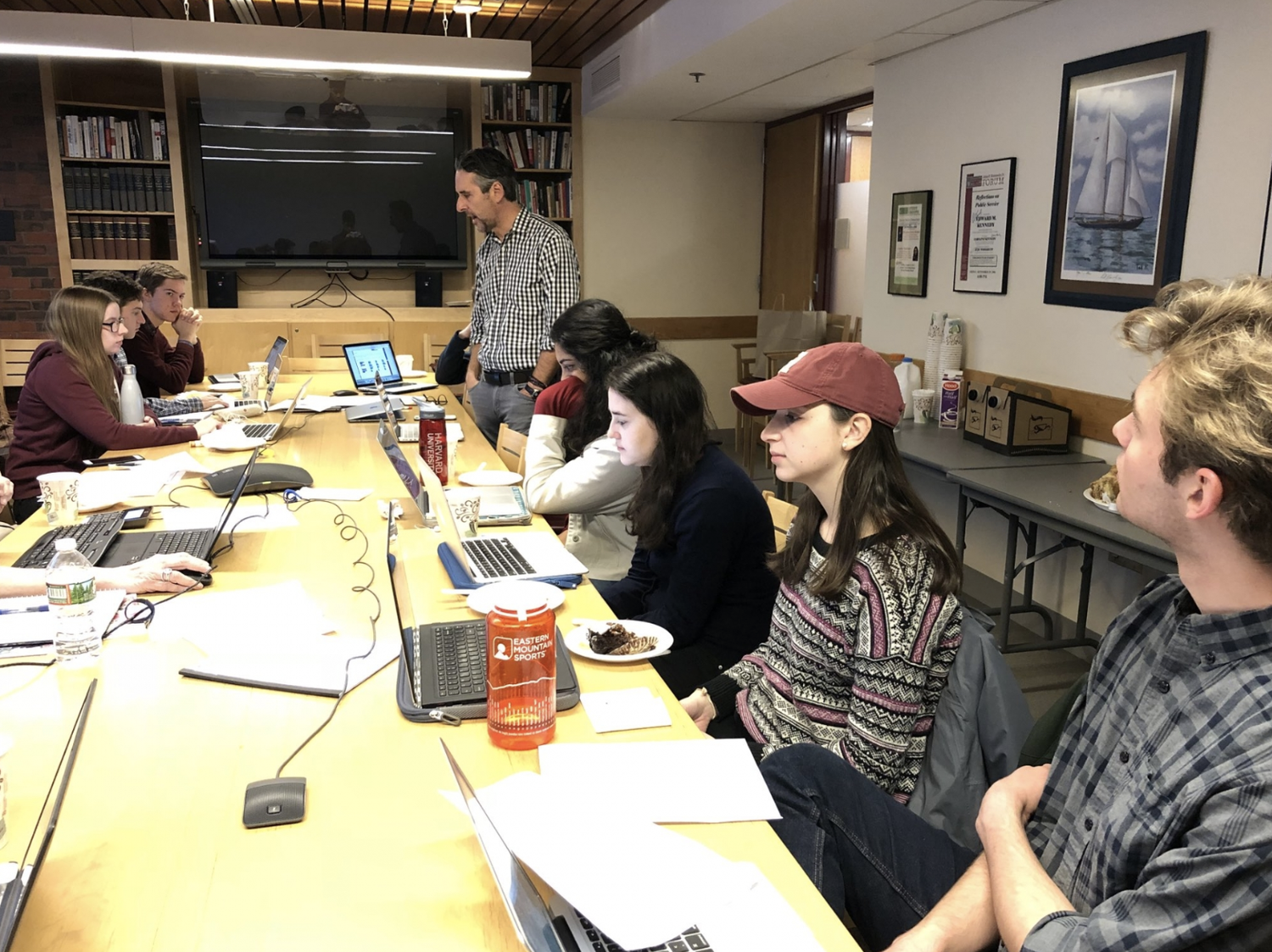
It Isn’t John Della Volpe’s Job to Predict the Future
John Della Volpe is the Director of Polling at the Harvard Kennedy School Institute of Politics whose research has focused on the public opinion of American youth since 2000. FM sat down with him to discuss the challenges that polling faces, its advantages for politicians, and the overall political sentiments of millennials today. This interview has been edited slightly for clarity and concision.
Fifteen Minutes: You’ve now been leading polling initiatives at the IOP for about 20 years. How have the environment and people at the IOP affected the work that you do?
John Della Volpe: I think the only reason that the poll is respected is because of the unique collaboration that I have as a polling director with students every single semester. My job is to elevate the voice of young people; my job is to tap into the ideas and the attitudes and the hypotheses that they have about political engagement and to measure to the extent to which they’re reflected in the broader population. Every year, there’s a new group of young pollsters who are adding energy and passion and curiosity, so we’re constantly updating and making the survey fresh. It’s always reflecting not just young people, but the unique cohort of young people who are coming of age politically, in real time, in front of us.
FM: When election results vary greatly from what polling suggested would happen, such as in the 2016 election, the validity and importance of polling can be questioned. When something like that happens, how can you assure the importance of polling? What steps should a pollster take to get more accurate results in the future?
JDV: The first thing is that national polling measures not the Electoral College, but the popular vote. So the polling averages across different kinds of data collection modes were incredibly accurate in 2016. However, clearly, there were important states in the Electoral College where the polling was off. And the industry conducted essentially an autopsy as a group to review data, understand why, and suggest improvements to modernize this process moving forward.
The second thing is that we need to recognize, especially in primaries, that it’s okay for people to change their mind. A poll that’s conducted on a Tuesday, Wednesday, or Thursday is not designed to be predictive of an event that hasn’t happened yet or that will happen five or six days from now. What we ask in the poll is, “If the election were held today, for whom would you vote?” So we’re not predicting what’s going to happen in the future. I’m confident that my colleagues throughout the industry understand the changes that are happening and have been making significant adjustments in order to make sure that the results that made people less confident about polling around the electoral college don’t happen again in 2020.

FM: People talk about the millennial vote and the generation overall as if it is one collective unit. From your experience, how homogeneous is the millennial vote really?
JDV: What’s important to understand is that age and generation are two of the most divisive demographic groups in America today. The opinions and attitudes of millennials and Gen Zers — and the way in which they vote — is significantly different from their parents and grandparents. The divide between gender, and in some cases, the divide between race and ethnicity, is more narrow than the divides between generations. So we talk a lot about America being divided 50/50, but a better way to think about it would be that if you’re under the age of 50, two-thirds of people vote one way, one third the other way. If you’re over the age of 50, it’s the opposite. So it’s really a two thirds, one third country, not a 50/50 country.
FM: How much of a role do you think that the youth vote will play in determining the winner of the 2020 election?
JDV: I think it’s going to play a critical role — it already has. There is virtually no way that Bernie Sanders would be the frontrunner, even if he’s a weakened frontrunner, if not for young people. So that’s already showing the role that young people are playing. Because of the strong level of support for Sanders, we’re having a conversation about Medicare for All and other elements of his agenda that we wouldn’t be having without the support over now four years among young people. So in that regard, it already has. The candidate who challenges Sanders or wins the nomination won’t have to win the entirety of the youth vote, but they have to be competitive. They have to be competitive. For a Democrat to win the Electoral College, he or she needs to win approximately 60 percent of the youth vote. Barack Obama did it twice. John Kerry and Hillary Clinton got 55 percent of that youth vote, and obviously we know what happened.

FM: Based on current polling, do you have a prediction for who will win the Democratic nomination?
JDV: No. And it’s not the job of polling to make predictions for something that’s many months away. We need to collect more data before we have any real understanding of the variables that are going to be at play. Having said that, I think younger people are reflective of the country as a whole, and that they truly seem torn between the Sanders approach to government and what you might call the Biden, Buttigieg, or Klobuchar approach to government. I think the party, as well as young people within the party, are still torn. The degree to which there’s clarity around those issues that very well may indicate who has an advantage heading into the summertime and the convention.
—Magazine staff writer Fiona K. Brennan can be reached at fiona.brennan@thecrimson.com. Follow her on Twitter @FionaBrennan23


